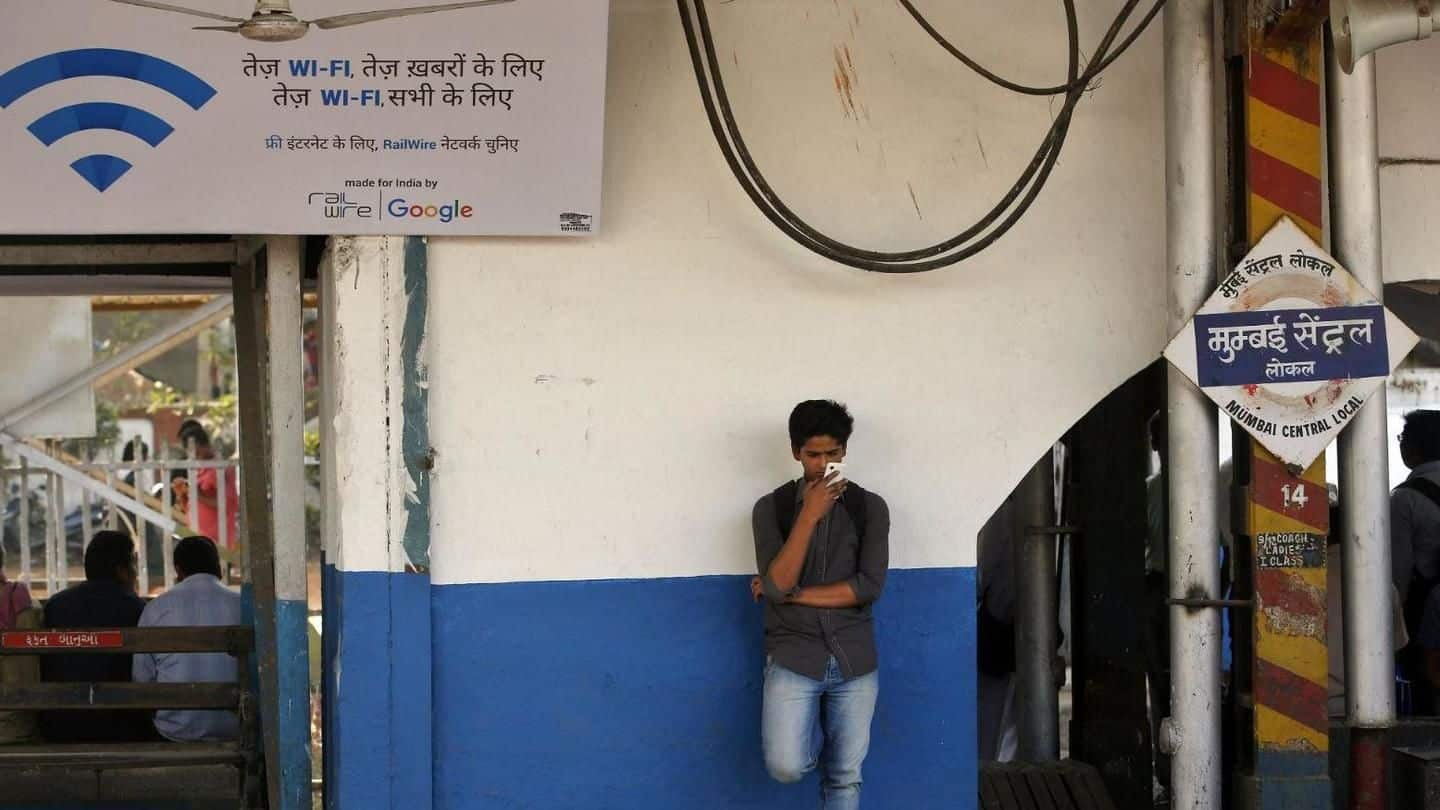
Google takes free Wi-Fi to 400 railway stations in India
What's the story
In 2.5 years, Google has installed free Wi-Fi hotspots in 400 Indian railway stations, the company said yesterday, with Dibrugarh in Assam being the latest. The project called 'RailWire', which it launched in January'16, is the "largest public Wi-Fi project in the world," with data speeds apparently faster than even London and San Francisco, it had once said. RailTel is helping Google with the infrastructure.
Beginning
In the first year, 100 stations were brought online
The first station to be connected was Mumbai Central. In a year, Google had brought 99 others online, it said, enabling 15,000 people daily to use the internet for the first time. "With over 8mn monthly-unique-users connecting to the network," this project can help "every growing economy looking to bring connectivity to everyone," K. Suri, Director, Partnership India, Next Billion Users, Google India, said.
Users
Users get 30-minute access to internet for free
Users can access data for 30 minutes for free. Till now, each session has consumed 350 MB of data on an average, Google said. Most users are aged 19-34, but support staff has been helping connect first-timers and older people too. More than 50% users access the network multiples times a day, which implies they are pursuing their occupation from stations, Google notes.
Outside
Google venturing outside railway-stations for the first time in India
Based on the success of RailWire, Google has now started installing "Google Stations" outside of railways for the first time in India, in collaboration with engineering and construction giant Larsen & Toubro In January, 150 such hotspots were deployed in Pune to boost its "Smart City" project. Google is expanding Wi-Fi access to more places under its 'Next Billion Users' initiative.
Government
railw
Meanwhile, the Railways itself is on a drive to equip over 8,000 stations with Wi-Fi by March'19. The focus would be on rural stations. Setting up 1-2 hotspots in a rural station is cheaper than prime urban stations like New Delhi or Howrah. It will also facilitate digital penetration in previously-unconnected regions. A RailTel-DoT partnership has already installed hotspots in 140 rural stations already.